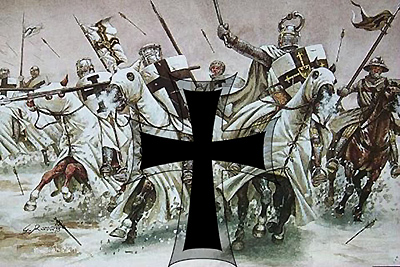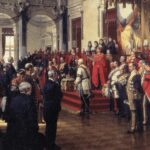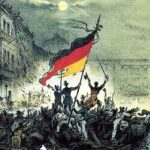
Did you know that Germany didn’t officially exist as a unified country until 1871? And yet, its history spans millennia, from tribal warriors in bear pelts to a reunified democracy at the heart of Europe. Welcome to the category page for German History—where emperors, poets, revolutions, and reunifications collide.
Whether you’re fascinated by medieval monarchies or curious about Cold War politics, there’s something here for every curious mind. This isn’t just a timeline of conquests and treaties—it’s a living, breathing narrative of innovation, struggle, and change. From Gutenberg’s press to the Berlin Wall, German history has influenced global events, literature, philosophy, and technology in profound ways.
In this section, we explore the pivotal events, cultural transformations, and historic figures that shaped not just Germany, but the entire Western world. Whether you’re a student tackling a term paper or a traveler looking to understand the past behind the palaces and ruins, you’re in the right place.
German History Category Overview
The story of Germany is one of upheaval, resilience, invention, and reinvention. It’s the tale of shifting borders, ideological revolutions, and cultural renaissances. It includes the grandeur of the Holy Roman Empire, the radical transformation of the Reformation, the fierce ambitions of the German Empire, the darkness of the Third Reich, and the hope of reunification.
Understanding German history isn’t just about memorizing dates—it’s about recognizing the deep currents that continue to shape German society today: its commitment to democracy, its reckoning with the past, and its leadership role in Europe. And perhaps most importantly, it’s about understanding how a nation can rise, fall, and rebuild with humility and purpose.
In this category, you’ll find expertly written articles that unpack key eras, major conflicts, groundbreaking reforms, and the people who made history. Whether you’re a student, traveler, or lifelong learner, this section will help you connect the dots—and maybe even change how you see the present.
Ancient and Medieval Germany
Long before Germany was a unified country, it was a patchwork of tribes, kingdoms, and principalities. Discover the roots of German identity through the rise of the Franks, Saxons, and Carolingians, and the vast influence of the Holy Roman Empire.
19th-Century Unification and the German Empire
The 1800s saw the unification of dozens of German-speaking states under Prussian leadership. Explore the cunning politics of Otto von Bismarck and the ambitions of Kaiser Wilhelm I.
- Otto von Bismarck: The Iron Chancellor Who Forged a Nation
- Kaiser Wilhelm I: The First Emperor of a United Germany
World Wars and the Third Reich
Germany’s involvement in two world wars left a lasting imprint on global history. Learn how political instability, economic crises, and radical ideologies gave rise to Nazism, and how post-war reflection shaped a new Germany.
Cold War and Reunification
After WWII, Germany was split in two—East and West. The fall of the Berlin Wall in 1989 became a global symbol of unity. Discover life on both sides of the Iron Curtain and how Germany reinvented itself after 1990.
Cultural Significance and Practical Applications
German history isn’t confined to textbooks—it’s alive in architecture, holidays, public debates, and the German psyche. Many German cities proudly preserve their medieval old towns, while museums like Berlin’s Topography of Terror confront the country’s darkest chapters.
Holidays like Tag der Deutschen Einheit (Day of German Unity) reflect historical milestones. German literature, from Goethe to Grass, often deals with historical reckoning. And yes, even Oktoberfest has roots in royal celebrations of Bavarian history. History also lives in the daily rhythm of civic life—from Grundgesetz (Germany’s post-war constitution) to its compulsory remembrance culture in schools.
Whether you’re tracing your family tree, visiting WWII memorials, studying German law, or exploring the philosophical legacies of Kant, Marx, and Nietzsche, understanding German history gives you a richer, more nuanced view of one of the world’s most influential cultures.
The history of Germany is anything but boring. It’s dramatic, diverse, and deeply relevant. By exploring this category, you’ll gain insight into the stories that shaped one of Europe’s most influential nations—and how that past continues to resonate.
If you’re intrigued by power shifts, cultural revolutions, or the resilience of people through history’s darkest hours, this is your starting point. History is not just what happened—it’s why things are the way they are now.
Explore the fascinating world of German History and discover how it continues to shape Germany today. Click into our featured articles and go deeper!
Early German History
Prehistoric and Ancient Germanic Tribes
The Origins of the Germanic Peoples
Arminius and the Battle of the Teutoburg Forest
The Battle of the Teutoburg Forest
Medieval Germany (dynasties):
The Thirty Years’ War, 1618-48:
The Age of Enlightened Absolutism, 1648-1789:
The French Revolution and Germany
The German Confederation, 1815-66:
Bismarck and the Unification of Germany
- Political Parties,
- The Economy and Population Growth,
- The Tariff Agreement of 1879 and Its Social Consequences,
- Bismarck’s Foreign Policy,
- Foreign Policy in the Wilhelmine Era,
- World War I, etc.
- Problems of Parliamentary Politics in The Weimar Republic,
- The Stresemann Era,
- Hitler and the Rise of National Socialism
The Third Reich, 1933-45:
- The Consolidation of Power,
- The Third Reich Foreign Policy,
- The Outbreak of World War II,
- Total Mobilization, Resistance, and the Holocaust,
- Defeat
Postwar Occupation and Division:
- The Nuremberg Trials and Denazification,
- Postwar Political Parties in Germany,
- The Birth of the Federal Republic of Germany,
- The Birth of the German Democratic Republic,
- The Creation of the Bizone, etc.
West Germany and the Community of Nations:
- Consolidation of the New State,
- Planned Economy,
- The Warsaw Pact and the National People’s Army,
- The Berlin Wall,
- The “Socialist State of the German Nation”
The Social Democratic-Free Democratic Coalition, 1969-82:
- Willy Brandt,
- Ostpolitik,
- Helmut Schmidt,
- The Student Movement and Terrorism,
- The Green Movement (Greens) in Germany
The Christian Democratic/Christian Socialist-Free Democratic Coalition, 1983-
- The Conference on Security and Cooperation in Europe,
- The New East German Constitution and the Question of Identity,
- Relations Between the Two Germanys, The Peace Movement and Internal Resistance in GDR,
- The Last Days of East Germany
Opening of the Berlin Wall and Unification
All Facts About GERMANY (geography, society, education system, economy, politics, mass media, armed forces)
The information is provided by the Library of Congress. This study attempts to review Germany and treat its dominant social, political, economic, and military aspects in a concise and objective manner.
“Aryanization” of Germany in 1933 and mass book burning
Here are some behind-the-scene personal experiences from the 1930’s that might be of interest.
Bombings and air-raids during WWII
I would like to share with you one more episode of my life. Let’s fast-forward to Berlin. The year is 1944.
Nazi Nightmares – Nazi Doctors
Nazi deeds – deathly human experiments on concentration camp prisoners and direct medical killings in Nazi Germany.
Nazi Gold
Here you’ll find the uncovered secrets of the Nazi Gold from Germany.
World War Memories
Life in Germany before and after the Versailles Treaty, and Hitler’s rise to power
The German Witch Hunts: A Dark Chapter in European History
Explore the history of the German witch hunts, the trials, and their impact on European society.







